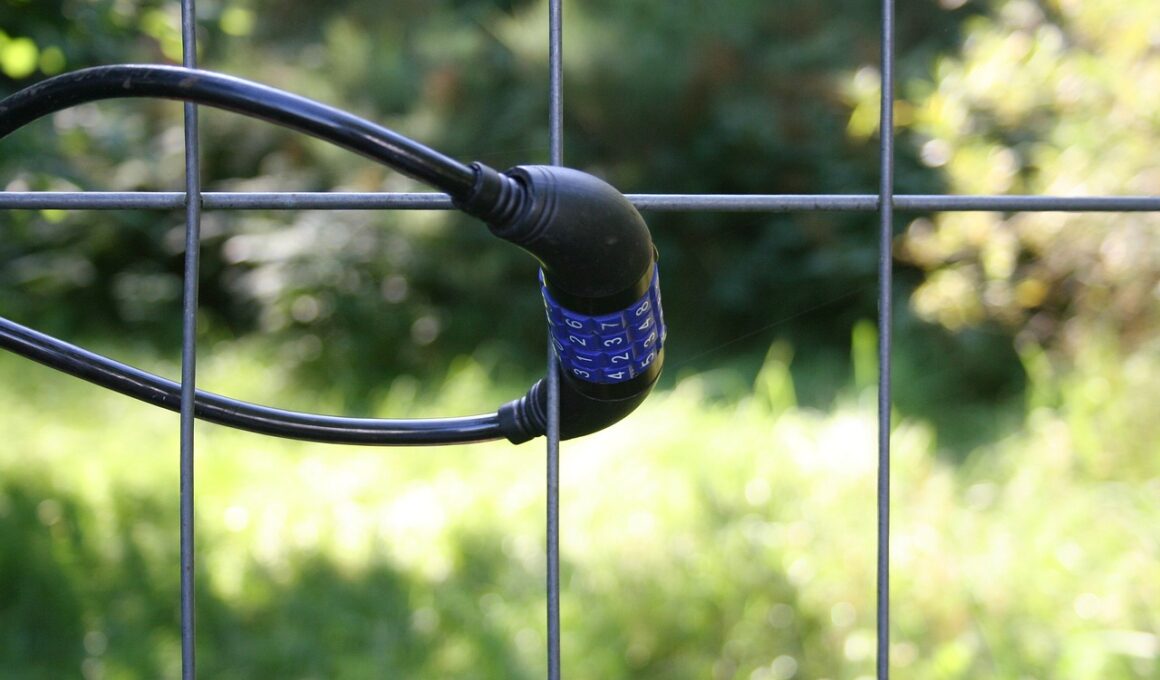How to Protect Your Dog from Theft: A Legal Guide
Protecting your dog from theft is an issue of utmost importance for every pet owner. The growing prevalence of dog thefts can lead to emotional devastation for families. Understanding the legal protections available can empower dog owners to act proactively. One essential step is to ensure your dog is microchipped. Microchipping provides a permanent form of identification not easily removed or lost. Always keep your contact information updated with the microchip company. Additionally, invest in quality collars and tags featuring your dog’s name and your phone number. This information is vital should someone find your pet. Establishing a solid relationship with local veterinarians can also help in recovery efforts. They often scan for microchips when a stray is brought in. Besides, it is crucial to be aware of the laws regarding pet theft in your region. Familiarize yourself with local ordinances and understand your rights as a pet owner. Educating yourself on the theft laws can provide clarity and enable you to take action promptly. Take these measures seriously, and you can significantly reduce the risk of dog theft.
Creating a Secure Environment
To effectively protect your dog from potential theft, it’s crucial to implement safety measures at home and beyond. Start by securely fencing your yard, ensuring it’s high enough and without gaps. Regularly check the fence for any weaknesses, and consider planting thorny bushes around the perimeter to deter intruders. Providing shelter inside, such as a garage or mudroom, can limit access to your dog during outings. When walking your dog, avoid secluded areas, especially at odd hours. Dogs can easily attract unwanted attention, so stay vigilant. Using a leash at all times and remaining aware of your surroundings are essential practices. Another component of securing your pet is involving your neighbors. Building a community network can lead to increased vigilance and timely reporting of any suspicious behavior related to dogs in your area. Training your dog to respond to commands can give you more control in critical situations. Take precaution before tying your dog outside while you run errands; it’s often best to take them with you. The more proactive you are, the safer your beloved companion will be.
Furthermore, it’s essential to understand the significance of thorough documentation concerning your dog. Maintaining an updated profile that includes notable characteristics, veterinary records, and photographs aids tremendously in recovery efforts if a theft occurs. A comprehensive documentation package should also contain microchip data and registration information. Store this information both digitally and physically, ensuring immediate access during emergencies. Social media can play a pivotal role in reclaiming stolen dogs. Actively share your dog’s photos and information on local platforms to garner support and awareness. Involving your community fosters a collective effort in keeping an eye on missing pets. Additionally, familiarize yourself with local pet theft resources and organizations. Support groups and legal aid services focused on animal theft can offer invaluable assistance if your dog is stolen. Knowing where to turn for help is a crucial resource when faced with such unfortunate circumstances. Staying informed about recent incidents in your area can also help prevent future occurrences. Your vigilance will not only aid your dog’s safety but contribute to the greater good of the community’s pets.
Understanding Legal Recourse
In the event of dog theft, familiarizing yourself with legal recourse options can significantly expedite the process of recovery. Most jurisdictions classify pet theft as a criminal offense, with potential penalties for offenders. Document all details associated with the incident including time, location, and any witnesses. This information will be beneficial in filing police reports. Engage local law enforcement promptly and provide them with your dog’s documentation, including microchip information. Understanding your rights as a pet owner can also involve consulting with legal experts in animal law. These professionals can guide you through the recovery process and your rights in terms of compensation. If your dog is stolen, it becomes vital to initiate recovery efforts immediately. The sooner you report the incident, the better your chances of being reunited. Your documentation will be instrumental in substantiating your ownership. Additionally, reaching out to local shelters and rescue organizations broadens the search. Some organizations specialize in helping families find stolen pets. Staying proactive during this distressing time is paramount to successful recovery.
Moreover, keeping abreast of local pet laws regarding theft can inform you of changes or new regulations. It is critical to know how these laws affect your situation and what steps you can take if recovery efforts fail. In various regions, dogs are considered personal property, which could have implications in a legal dispute over ownership. Being aware of these nuances can shape your approach when engaging law enforcement or legal aid. Keeping a log of any interactions with law enforcement, neighbors, and witnesses related to the theft can serve as documented evidence. Additionally, using social media for awareness campaigns can amplify your message, engaging a wider reach. Share graphics and status updates, encouraging your friends and family to assist. Collaborate with local fan groups dedicated to specific breeds; they often have resources and networks that extend beyond your area. Involving these platforms can yield unexpected support. Lastly, participation in community events can provide networking opportunities aimed at strengthening pet safety initiatives. By joining forces with other pet owners, you contribute to enhanced neighborhood vigilance.
Building Community Awareness
Community awareness can significantly impact the protection of your dog from theft. Engaging neighbors and local pet owners creates a support system that actively watches out for animals in your area. Hosting or attending local pet meetups allows for networking with like-minded individuals who share similar concerns about pet safety. Sharing experiences, tips, and best practices fosters a collective desire for protecting pets. Printing flyers with your dog’s information and distributing them in the neighborhood can enhance visibility. Establishing a pet watch group further amplifies the message of vigilance and collaboration. Local businesses can be allies; request they display flyers or posters informing about small dogs or specific breeds that may be targeted frequently. Collaborate with local media to spread awareness on dog theft issues affecting your community. By amplifying the conversation around dog theft, more individuals become aware of suspicious activities. Furthermore, the formation of social media groups specifically for lost and found pets in your area can streamline communication and coordination among community members. This proactive approach fosters connection and solidarity, making it less likely for crimes of this nature to occur.
Finally, always keep in mind to maintain a friendly yet serious tone when discussing dog safety with acquaintances. Encouraging discussions around pet theft can help breed awareness without inducing panic. Host educational workshops or invite professionals to speak on the importance of maintaining security for dogs in the community. Workshops can educate fellow pet owners about protective measures, safe practices, and important legal information regarding pet ownership. Your involvement can inspire others to take ownership of their pet’s safety. Alternatively, utilize effective storytelling methods to share impactful cases of dog theft recovery, showcasing success stories of how vigilance has led to positive outcomes. This can motivate others to engage in preventative measures. Share your story! Comprehensive discussions revolve around shared experiences foster understanding and camaraderie. Remember, an informed community is a safe community. Your dog deserves the best possible protection you can provide. Take action, raise awareness, and become a beacon of hope for recovering lost or stolen dogs in your community. Every effort counts, and collectively, we can create a significant impact.


